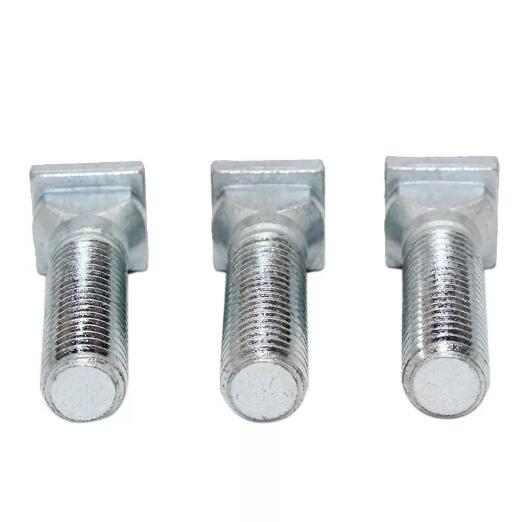Unveiling Strength: Grades of Stainless Steel in T Bolts and Their Mechanical Marvels
2023-12-18
Introduction:
Stainless steel T bolts, revered for their strength and corrosion resistance, owe much of their performance to the specific grades of stainless steel from which they are crafted. In this blog, we'll explore the common grades of stainless steel used in T bolts and delve into how these grades impact the mechanical properties of these essential fasteners.
1. A Brief Overview of Stainless Steel Grades:
Stainless steel comes in various grades, each tailored for specific applications. Common grades used in T bolts include 304, 316, and 18-8 stainless steel. The numbers denote the composition of alloying elements in each grade.
2. Grade 304 Stainless Steel:
- Composition: Primarily composed of 18% chromium and 8% nickel.
- Mechanical Properties: Known for its excellent corrosion resistance, good formability, and versatility. T bolts made from 304 stainless steel exhibit strength suitable for a wide range of applications.
3. Grade 316 Stainless Steel:
- Composition: Contains 16-18% chromium, 10-14% nickel, and 2-3% molybdenum.
- Mechanical Properties: Enhanced corrosion resistance, particularly in aggressive environments such as marine or chemical settings. The addition of molybdenum contributes to increased resistance to pitting and crevice corrosion.
4. Grade 18-8 Stainless Steel:
- Composition: Similar to 304 stainless steel, typically with 18% chromium and 8% nickel.
- Mechanical Properties: Offers good corrosion resistance and strength. This grade is often used in less demanding environments, making it a cost-effective choice for T bolts.
5. Impact of Chromium and Nickel:
- Chromium: The addition of chromium forms a protective oxide layer on the surface, enhancing corrosion resistance.
- Nickel: Contributes to the overall strength of the stainless steel and aids in maintaining the austenitic structure, especially in high-temperature conditions.
6. Molybdenum's Role in Corrosion Resistance:
- In grades like 316, the inclusion of molybdenum significantly improves corrosion resistance, especially in chloride-rich environments. This makes T bolts suitable for applications where exposure to saltwater is common.
Conclusion:
The selection of stainless steel grades is a critical aspect of T bolt manufacturing, shaping the mechanical prowess and corrosion resistance of these essential fasteners. Whether it's the versatility of 304, the enhanced corrosion resistance of 316, or the cost-effective strength of 18-8, each grade plays a vital role in meeting the demands of diverse applications. As we appreciate the strength and durability of stainless steel T bolts, understanding the impact of these grades on their mechanical properties adds depth to our recognition of these indispensable fasteners.



